In recent years, the beauty industry has seen a significant shift towards clinically proven skincare products. This change marks a departure from the traditional allure of luxury packaging and celebrity endorsements, focusing instead on efficacy and scientific validation. Alongside this trend, there's a growing appreciation for "unsexy" beauty products—those that may not look glamorous on a vanity but deliver results. Remember #shelfies?
What goes around comes back around 🔄
In the '90s and early aughts, drugstore brands like Noxzema, Clean & Clear, and St. Ives were the holy grail of skincare staples. Before the rise of influencers, consumers relied heavily on 'doctor-recommended' claims to guide their skincare purchases. After a while, the medically associated stamp on the bottle wasn't enough. People began to question the authenticity of the claims and ingredients. As access to information expands, consumers become more discerning, seeking cleaner, more natural ingredients and wanting to know more about the brand, its ethos, and sourcing. Indie brands began to dominate the market, resonating with consumers through their relatable language and perceived honesty. But, the allure of healthwashing and greenwashing could only last so long, and expectations are shifting again. And this time, it feels like a shift towards the middle and less to the extreme.
The proliferation of influencer marketing in the consumer space has created new sources of wellness information—with varying degrees of credibility. As consumers look to avoid “healthwashing” (that is, deceptive marketing that positions a product as healthier than it really is), healthcare provider recommendations are important once again.
Doctor recommendations are the third-highest-ranked source of influence on consumer health and wellness purchase decisions in the United States. Consumers said they are most influenced by doctors’ recommendations when seeking care related to mindfulness, sleep, and overall health (which includes the use of vitamins, over-the-counter medications, and personal- and home-care products). Source: McKinsey & Company
The beauty market has always been driven by trends, but the current move back towards clinically proven products is rooted in consumer demand for deeper transparency and efficacy. Armed with information from the internet and social media, modern consumers are more skeptical than ever of grandiose claims without evidence. They want products that are backed by science and have been proven to work through rigorous testing.
1. Real Derms Weigh-In: With the rise of beauty influencers and dermatologists, like Dr. Naana Boakye, sharing knowledge online, consumers are becoming more educated about ingredients and their effects on the skin. This knowledge empowers them to make informed decisions, favoring products that offer clinical validation over mere aesthetic appeal.
2. Regulatory Scrutiny: Governments and regulatory bodies increasingly scrutinize brands' claims. This heightened oversight encourages brands to invest in clinical trials and transparently report their findings, further driving the trend toward scientifically-backed products. However, it's important to note that clinical trials alone aren't a fail-proof marker of a product's effectiveness. Companies can sometimes design studies to yield favorable outcomes, so consumers should also consider independent reviews and additional evidence when evaluating a product's efficacy.
3. Technology, Baby: But there’s hope. Innovations in skincare technology, such as personalized skincare regimens based on genetic testing and advanced delivery systems, are making it easier for brands to develop and prove the efficacy of their products. These advancements are helping to build better products and, in turn, consumer trust and loyalty.
The Appeal of "Unsexy" Beauty Products 🧌
Parallel to the rise of clinically proven skincare is the growing popularity of so-called "unsexy" beauty products. Creators on BeautyTok like @TaylorBosmann (shout out to Taylor Gang), @_Boussoo, and @CharineCheungg are going back to the basics and dusting oldies off the shelves of Walgreens and CVS to share what works for common skin conditions. These products come in simple packaging, focusing on functionality rather than aesthetics, and the appeal lies in their effectiveness. This resonates with consumers who are tired of overhyped, overly expensive products and misleading marketing. This shift is particularly noticeable in products like retinoids, hyaluronic acid serums, and ceramide-rich moisturizers.
Scale Down and Dupe Up 👯♀️
The “unsexy” minimalist skincare trend also focuses on using fewer yet highly effective products. Many influencers who once flaunted extensive routines with double-digit product counts have now embraced this simpler approach. By dialing back their routines, they’ve found that products can work more efficiently, reducing the chances of irritation and the risk of products canceling each other out.
BeautyTok is also on it with the beauty and skincare dupes. People are getting really good at spotting the simple, effective ingredients in pricey products and finding affordable alternatives that work just as well. Creator Nina Pool, who light-heartedly nods to her “special flavor of autism” that makes her like to read the backs of labels, jumped on this niche trend on TikTok. And the trend has made it clear that you don’t have to spend a fortune on great skincare. By highlighting these dupes, influencers are helping consumers make smarter, budget-friendly choices without sacrificing results.
 Tiktok failed to load.
Tiktok failed to load.Enable 3rd party cookies or use another browser
The Protocol 💊
Despite my addiction to trying every shiny new product on the market, I have my share of ride-or-die brands that have held me down from day one. When something works, it works. I like to think of it as high-low shopping for skincare. Also, you can never have too many moisturizers. An ex once told me I was obsessed with creams because there were tons of bottles in my bathroom and every other room of my apartment. I’m a Black girl; of course, I have fifty-eleven different lotions at any given time.
My skin tends to lean on the oily, combination side, and in my big age, I still suffer from hormonal acne and hyperpigmentation. Using oils to manage excessive sebum production in oily skin might seem counterintuitive, but certain oils like jojoba and squalane can help balance the skin’s natural oils and reduce overproduction. Benzoyl peroxide is another staple known for its effectiveness in treating acne by killing bacteria and reducing inflammation. And for those dealing with hyperpigmentation, hydroquinone remains a gold standard due to its ability to inhibit melanin production and gradually lighten dark spots–more ingredients backed by scientific research, offering reliable solutions that you can trust✨.
Check out 🛒
PanOxyl Acne Foaming Wash Benzoyl Peroxide 10% Maximum Strength Antimicrobial $9.28; This product is the reason I switched from beige to all-white towels. Seriously, this will bleach your things if you’re not careful. But it works! It’s a maximum-strength antimicrobial foaming wash that kills acne-causing bacteria on contact and lifts dirt from pores. It cleans and unclogs pores on the face, chest, and back. It clears existing acne and helps prevent new blemishes from forming.
Versed Day Dissolve Cleansing Balm with Vitamin E, Eucalyptus Oil, Avocado, and Jojoba Oil (2.3 oz) $17.97; there is a trick to using this one. It’s great for removing makeup and even better for unclogging pores. You have to start with dry hands and a dry face. Work in very quick circular motions, focusing on one area for a minimum of 30 seconds. It’s a bit of a long process, but it's worth it. You can feel and see the dry sebum just sliding out of your pores. Follow up with a regular foam cleanser afterward.
CeraVe Moisturizing Body and Face Cream with Hyaluronic Acid and Ceramides, Oil-Free, Fragrance-Free, Non-Comedogenic $17.78; I like to use a thicker cream at night that plays well with my prescription strength Tretinoin, and this one does the trick. It is non-comedogenic, a word you should know if you are prone to breakouts, meaning it won’t clog your pores.
Eucerin Intensive Repair Essential Oil Balm, Body Balm for Very Dry Skin with Skin Essential Oils Shea Butter and Sunflower Oil, 7 Oz $12.99; I discovered this gem visiting a friend’s house (shout out to Ange!). On days I skip my dry oil and want to look like a slicked, dewy snack, I slather a layer of this balm over whatever lotion I choose. It locks in the moisture ALL DAY & NIGHT!
Vaseline Unscented Petroleum Jelly 50ml - Whole Body Moisturizer for Dry Skin, 1.69oz $4.81; the Swiss Army knife of products, Vaseline literally cures everything. If I run out of eye cream, Vaseline. If I cut or burn myself, Vaseline. If my heels or cuticles are dry, Vaseline. In between tubes of Rhode Lip Gloss, Vaseline. Just buy it.
Biotrue Hydration Boost Eye Drops, 0.33 FL OZ (10 mL) $11.25; I don’t even wear contacts, but I do have allergies, and this brand of eye drops makes my eyes feel like they’re floating in holy water.
Pure by Gillette Venus Shaving Cream Manuka Honey and Vanilla, 6oz (Pack of 2) $16.46; I have a serious problem. I am a menace with a razor. I shave like it’s my first time, every time. The base of this shaving cream is shea butter, so luckily, it is thick enough that I don’t cut myself. Plus, it just feels nice.
EltaMD UV Clear Face Sunscreen, Oil-Free Sunscreen with Zinc Oxide, 1.7 oz $40.85; A doctor gave me a sample of this, and I instantly loved it. It’s a zinc-based, physical sunscreen that rubs down to a clear finish instead of a white cast. Plus, zinc is a calming, anti-inflamitory anxiety killer. Win, win.
The Honey Pot Company Sensitive Feminine Wash 5.51 Fluid Oz. $9.88; don’t be scared to talk about it 😽! Honestly, I don’t like the idea of using harsh soaps anywhere near down there. This wash stays in rotation. It balances your pH and boosts moisture while gently cleansing your most delicate parts. It’s science-backed, dermatologist-approved, hypoallergenic, kind to, and safe for skin.
📌 Final Thoughts: Trends in the beauty industry are indeed cyclical, and it's refreshing to get back to the basics with products that might seem unsexy but are actually incredibly sexy because they work. As this trend continues, we can expect to see even more emphasis on scientific validation and honest marketing in the beauty industry, ultimately leading to a more informed and satisfied consumer base. And in today's economic environment, finding good dupes can go a long way. You don’t have to spend a ton to get products that truly deliver results. Embrace the simplicity, trust the science, and enjoy effective skincare benefits without breaking the bank.
Stay curoius, stay beautiful!
Until next time,
T.


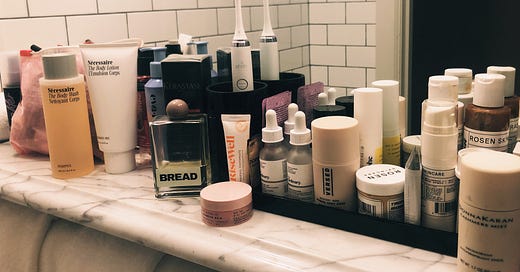



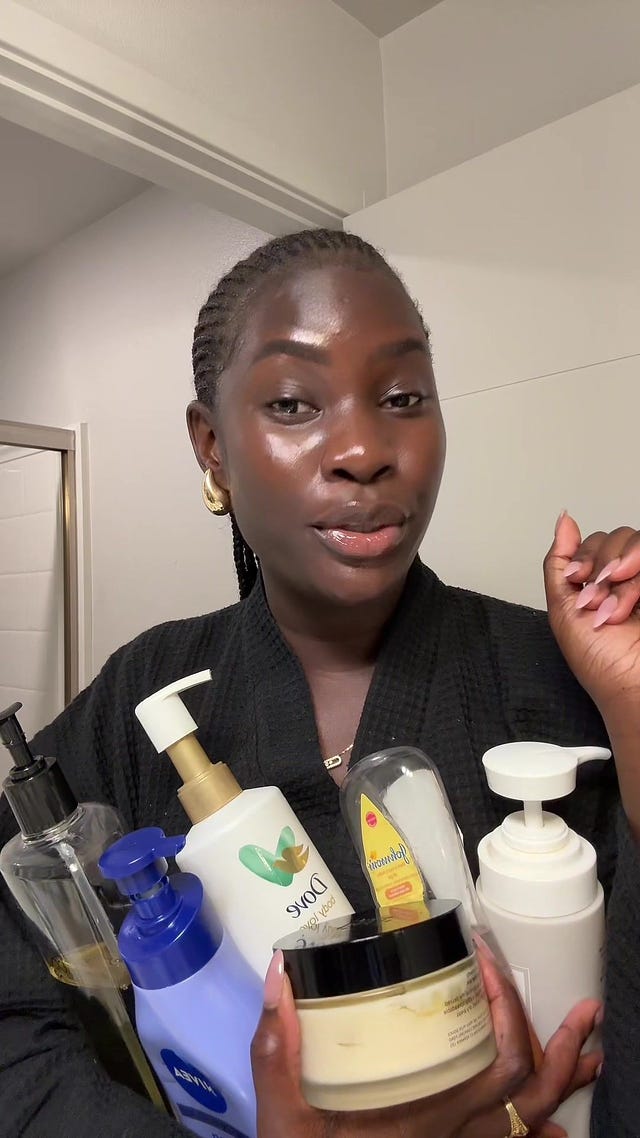
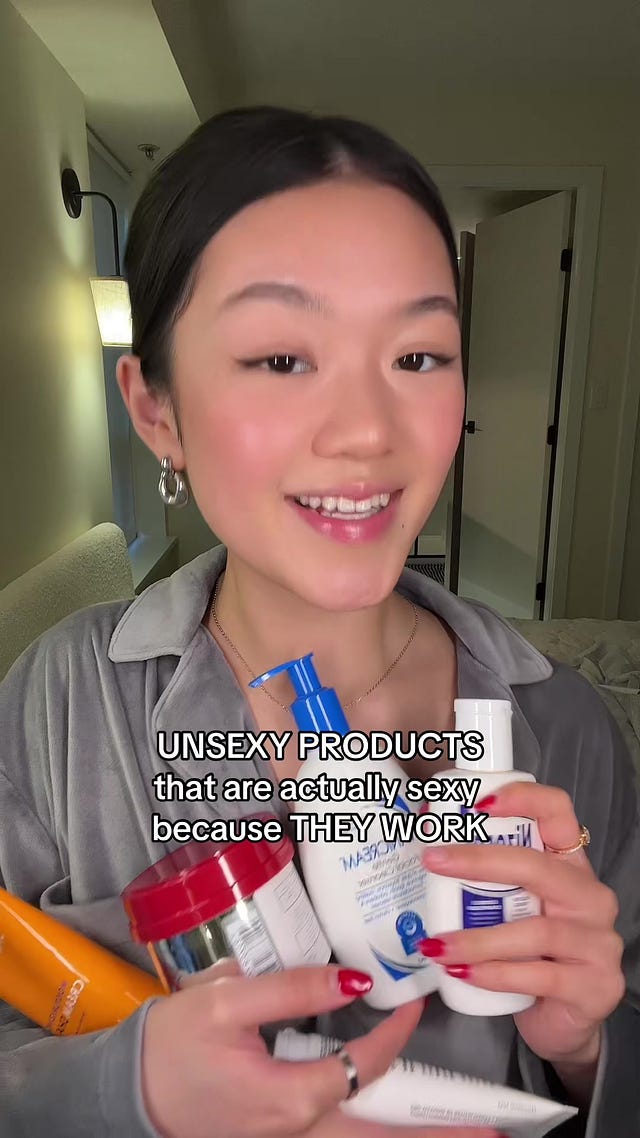
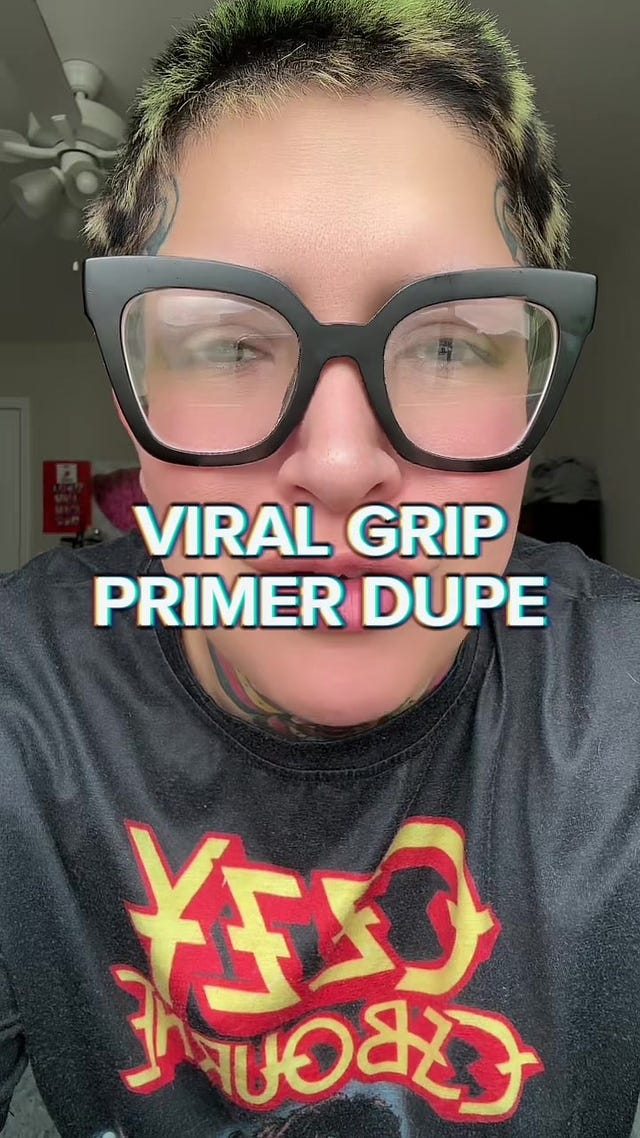
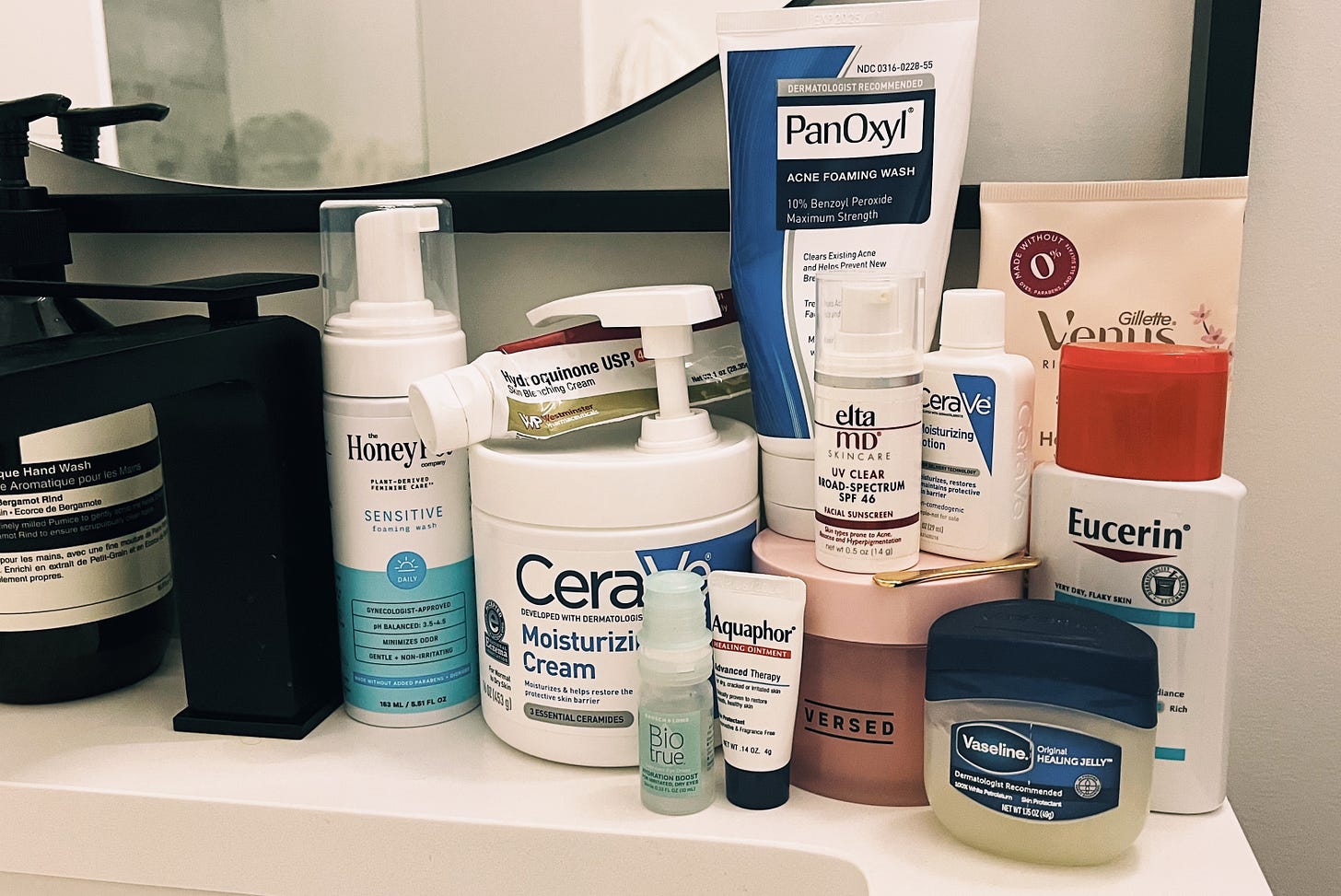
Back to the classics, huh? Oldies but goodies! I bought my wife Fenty a few years ago and she loves the results. What's more, I love the feel of it in using it myself. Now my son is of age where he is starting to get acne. It seems like the old regiment I use to use might be a good start for him. Thanks!
Yes! Neutrogena Body Oil was all I used to use back in the day. Everytime I see it in the drug stores I want to get it. This just made up my mind!